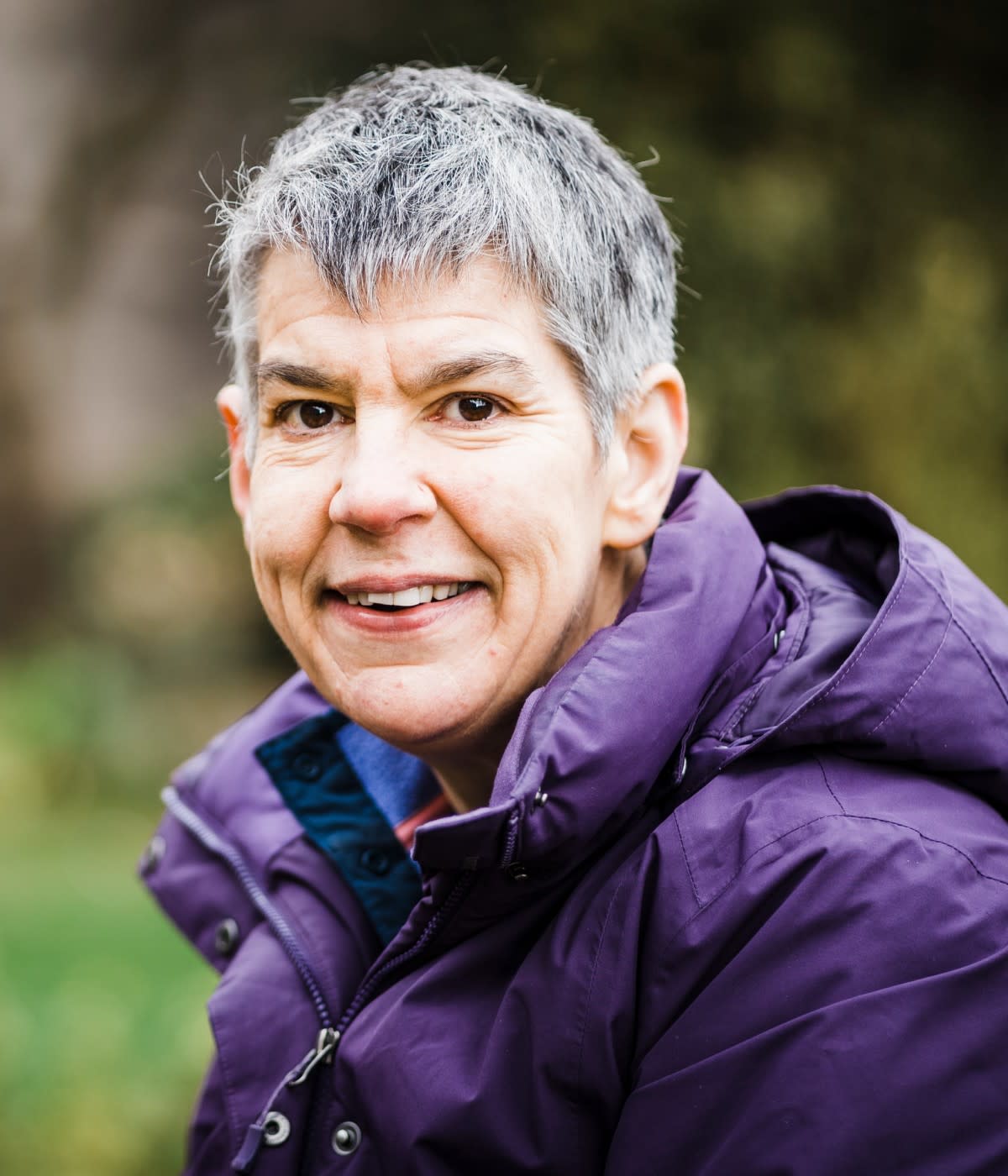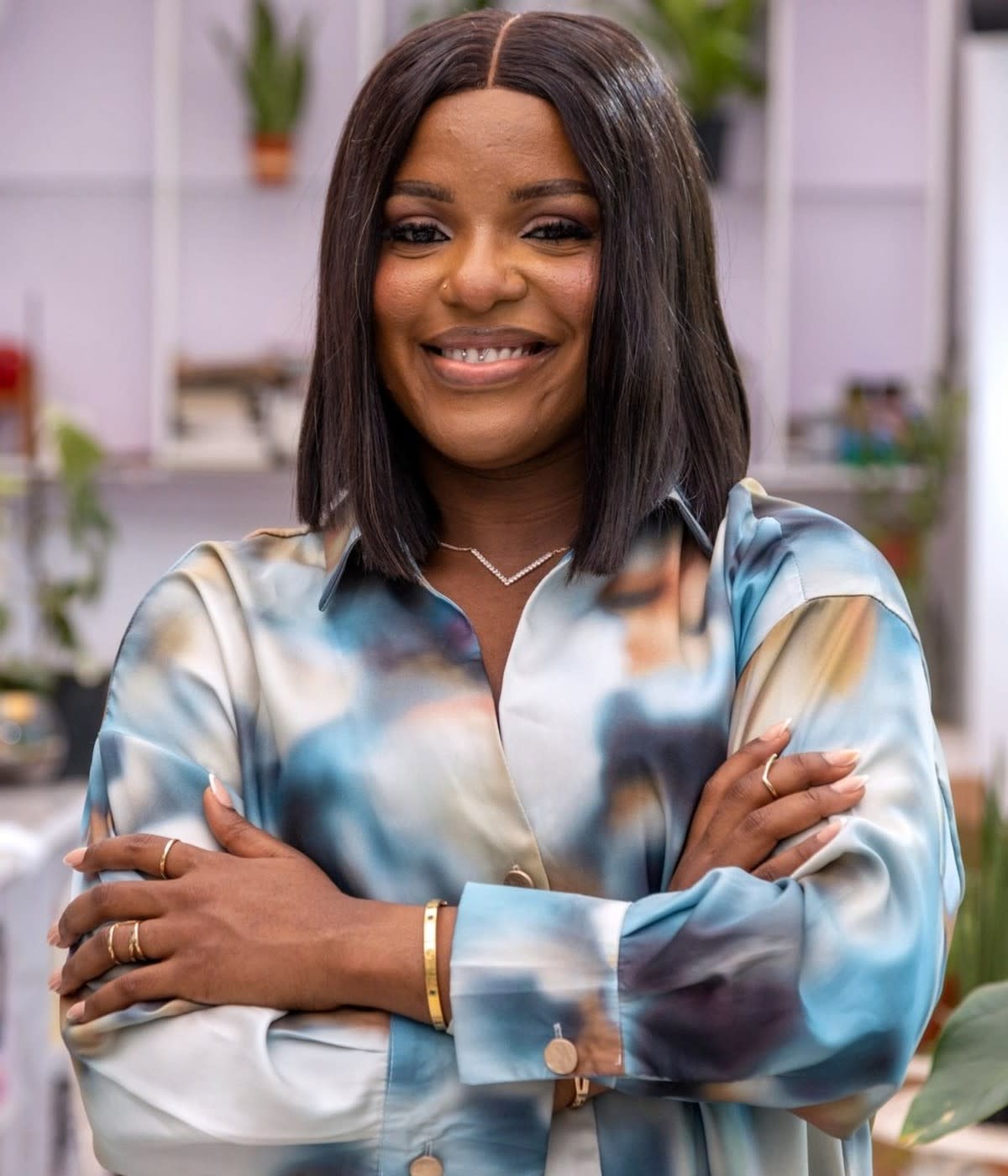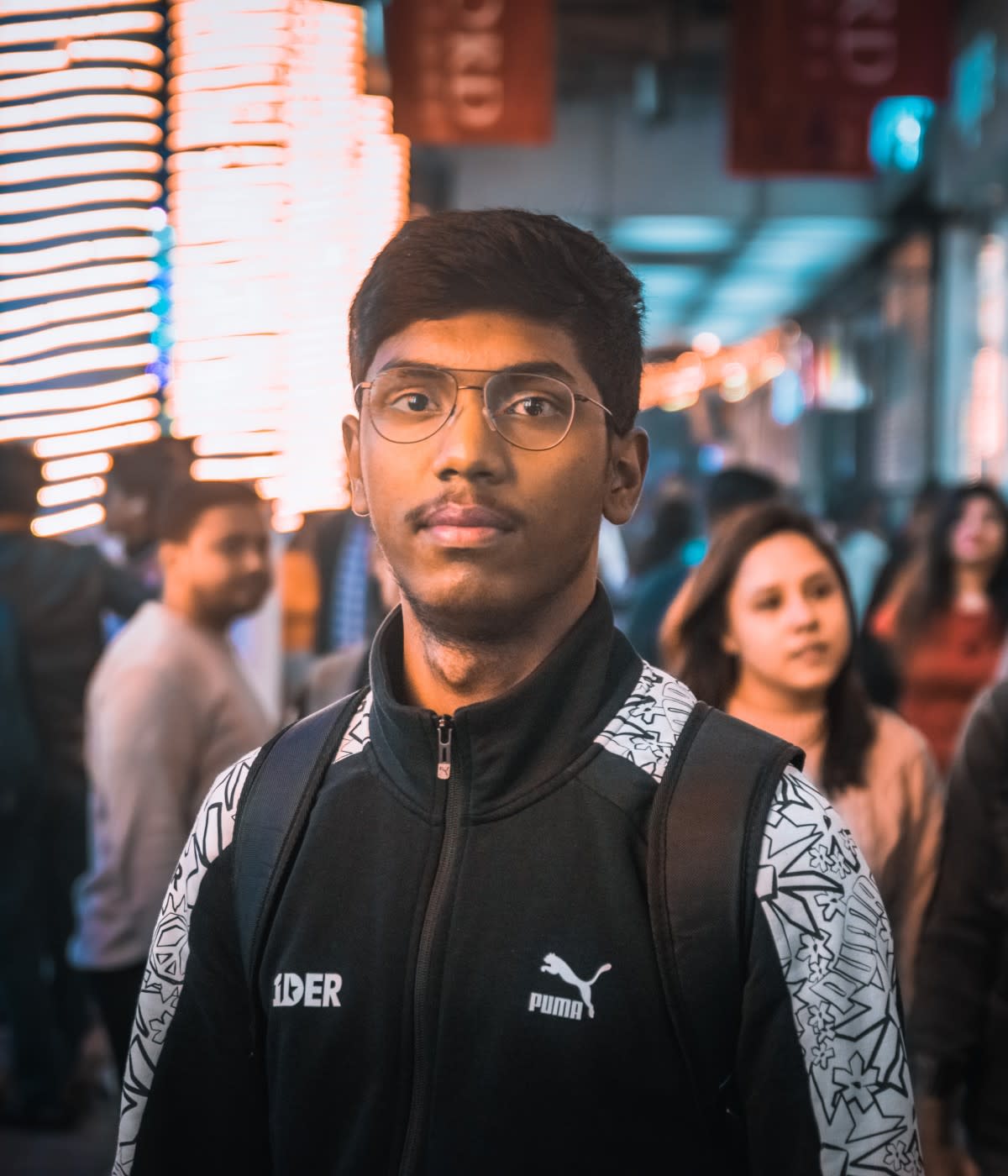I love open source as a medium for connecting developers around the world. I never would have thought that right here from Lagos, Nigeria, I could communicate with so many people from so many different places. Open source itself is great, but the community is more important. It’s not just about contributing to this project or that project. Our interests often bring us together on Twitter, and that expands to include real-life connections. You actually get to be part of the community and interact with people.
Personally, I can say that the community has improved my career. For example, I got to attend GitHub Universe 2019 because a member of the open source community, Sarah Drasner, invited me. I never would have expected to attend. But I’ve had a series of things like that happen to me simply because I made the effort to actually engage with them. I’m very happy and grateful for these relationships.

A serendipitous start, and inspiration from a friend
When I was younger, we had a computer at home, and the first thing I really loved was Microsoft Word and PowerPoint. I always felt very comfortable with those programs, and could spend an entire day with them. I remember my parents saying, “You’re always doing this. Is this what you’ll eventually do with your life?”
Thankfully, I was lucky enough to be selected for a summer computer school program in high school. Then I studied computer science, which gave me an introduction to the programming and developer world. I think I’ve always wanted to be a developer, even though I had no idea that coding existed before I started my degree.
I got started in open source in 2016 because a friend, Prosper Otemuyiwa, had this project, the Laravel Hackathon Starter, that was trending at number one on GitHub. He was even ahead of Facebook. Everyone was talking about it because no one from Nigeria had ever done anything with open source that had such a big impact. It inspired me. When I spoke to Prosper to see where to start, he directed me to GitHub. That’s when I created my profile. I remember trying to figure everything out, and the first contribution I ever had was to Prosper’s repository, improving the README.
Starting small to build the open source community in Africa
Before now, we had little or no contributors or maintainers on source projects in Africa. Thankfully, a couple people have stood up against that, like Prosper, and Samson Goddy, who’s doing a very good job with Open Source Africa. Samson and I actually attended the same GitHub Universe, and I went to his Open Source Festival and hosted a workshop there.
Before I got to know Samson’s community, I followed a few other Africans who had built projects on open source. Shalvah Adebayo’s RemindMeOfThisTweet bot, which was really popular last year. But the truth is, most developers here just aren’t involved in open source. Even if they’ve been working as a developer for five years, they still may not know what GitHub or open source is because not enough people were actively advocating for or contributing to it. Thankfully, we’re building a strong community that’s advocating for open source in Africa. Samson’s reach is really great. I’ve seen him sensitize people to the whole open source community and why they should be part of it.
I am very active locally, and lead a couple of developer communities here in Lagos. At Open Source Festival Africa, I held a Frontend Foxes workshop where I guided everybody to make their first contributions and read them out loud. None of them are perfect! Or huge. So it helps everyone get more comfortable and excited to contribute more.
I’ve had so many people tell me they can’t contribute because they don’t have the right idea or know where to begin. But it doesn’t have to be this big thing. There are people that create expansive projects, yes, but there are also people that just make smaller tweaks (like I did at the start!). If you see an excited new contributor, engage them in the project and that will help them keep coming back. Encourage them to start small and build from there. Just make that first contribution.
Embracing the community behind the code
One project I really love right now is called Gridsome, a static site generator built with Vue.js. I was trying to rebuild my blog with JavaScript. I’m conversant but wanted to improve my skills by using something related to JavaScript—mainly Vue.js—and found Gridsome after Tommy, one of the co-founders tweeted about it.
Usually, you’d learn JavaScript first before moving to a framework. I did learn a bit of JavaScript, but not entirely, and when I moved on to Vue, I remember how smooth the whole journey was. The documentation is one of the best I’ve seen. Everybody talks about it. It’s very intuitive and taught me everything I needed to know. I could tell there was a lot of thought put into its structure because I’m passionate about technical writing. I follow the people who work on the Vue documentation, and I’ve seen the effort they make. I really commend them for that.
I took a look at the documentation for Gridsome to see how I could use it for myself, and found that a lot of information was “coming soon.” That was my gateway. Since then, I’ve been doing a lot of advocacy about it because I really love it. I’ve dedicated my time to work on documentation, and contributed to many different sections. I’ve also created a lot of content, like blog posts and videos, and recommend it to anyone making their own site.
The Vue.js community is very open and beginner-friendly—both on and offline. At the Vue.js Amsterdam conference a few years ago, they announced Frontend Foxes, a community helping those who identify as women learn front-end technology. But it was so new that they only had chapters in the U.S. and a few other countries. I joined the Slack channel and started chatting with all these successful women. The Frontend Foxes were so inspiring, and I immediately looked up to them. There was only one chapter in all of Africa, so I reached out to the founder, Jen Looper, and asked if I could start one in Nigeria. She said of course.
It’s been amazing so far. A lot of people I’ve met through Frontend Foxes have made lasting changes in my life. We host workshops for women or people that identify as such to come and learn Vue. It’s not just attending talks and events: We want our members to go home with something tangible. Since I joined I’ve hosted three meet-ups at Frontend Foxes Lagos and two different workshops at Concatenate Conference and Open Source Festival, where we encourage more women to join the community.
Another project I recently started contributing to is RubyGems and Bundler, which is like the npm for Ruby. They are all so welcoming. I started contributing last month, and I’m improving the documentation as a contributor. When I told the founder and core maintainer of RubyGems and Bundler, André Arko, that I didn’t have any idea where to start, he patiently walked me through it in the simplest way possible. He understood that I was new to the project, and was just so helpful. I’m really excited to be contributing, and can’t wait to see what I’ll be able to do in the next couple of months.

What goes around comes around
My passion for the open source community is fueled by other open source contributors and maintainers. They put so much time and effort into this—for free. Contributing is a great way for me to thank them, and give back. I know other people benefit from what I do, and that feels good.
I’m still trying to figure how to balance everything. For now, I create time blocks. So if I work eight hours every day on Datopian, I might get an extra two or three hours after that, and I can use one to contribute to RubyGems. I try not to enforce it too aggressively on weekends, but just see what I have time to do. Eventually, I’d love to be a maintainer, and I’m taking steps to get there. For example, I was contracted by ButterCMS to write an article and also build a source plugin for Gridsome. It’s not something I actively maintained, but it helped me understand the process of creating something and putting it out there in the open source world. Thinking about the future, or my career path, inspires me and keeps me going. When I visualize where I want to be, I can move forward toward that image.
One of my mottos is to actually “do the work.” I’ve seen a lot of people just talk about the work they want to do, or complain about things they’ve never even tried to do themselves. So I want to be in a position where I am actually doing the work, not just talking about it.
Something else that really motivates me is my desire to teach and learn—both of which I love to do, even if I’m not being paid. I remind myself to “always be learning.” If I find something interesting, I do this thing I call “learning in public”: I announce in some public way that I’m going to learn it, and that holds me accountable.
I remember when I was studying a topic I found inspiring in school, I’d always skip ahead. I see myself doing that a lot, not just in terms of education, but general knowledge; if I hear a word I don’t know, I’m going to look it up. I want to be informed. As a developer, I’ve learned you can’t get stuck in one place. You learn another language, great. But don’t stop there. Technology changes quickly. You have to stay curious and keep learning and improving your skills. The education never stops.




